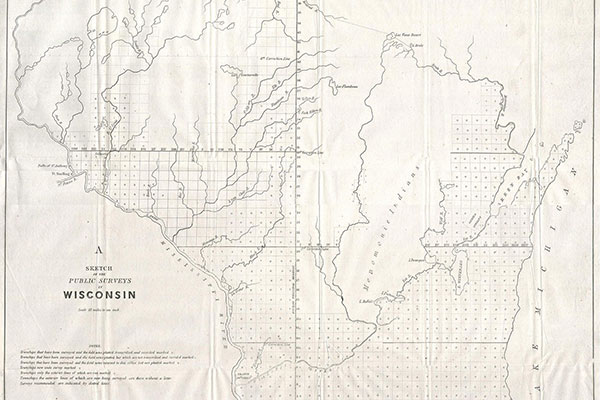Time and Place
Location: Jim Shields Gallery of Architecture & Urbanism sponsored by HGA (AUP146) – UWM Campus – 2131 E Hartford Ave, Milwaukee, WI 53211
Time: 1:30 pm
WORKSHOP
Workshop Summary:
How can architecture “explore the ground,” be “sited” or “site-specific,” or relate to “territorial” scales of landscape and design when the land we build on is often itself contested? How can designers work to emphasize and make visible competing personal, cultural, legal, political, and ecological claims to place, rather than attempting to resolve or erase them? How do settler colonial histories of displacement and dispossession, but also indigenous land claims activism and utopian planning and community engagement, shape our understanding of what land means from our vantage point in Wisconsin–traditional territories of the Potawatomi, Ho-Chunk, Menominee, and Anishinaabe but also the longtime, sovereign home of the Oneida?
This workshop will use mixed media papermaking as a hands-on, material data visualization and cartographic medium. It will require students to interpret a series of primary documents relating to Oneida places and use them to generate formal and material rulesets to govern their collaborative fabrication of a room-scale, three-dimensional paper “map.”
BIO:
Maura Lucking is a historian of architectural modernism and the nineteenth century U.S. She is interested in design as the intersection of connected histories of race, craft, land, and labor.
Her current book project, titled Settler Campus, provides an architectural history of the Land Grant college movement. In it, she studies the relationship between government policy, land use, campus planning, and design pedagogy at schools founded after the U.S. Civil War, considering the role of design practices in Black and Native dispossession as well as the construction of new racial identities and settler colonial hierarchies.
Questions, comments?
All lectures are free and open to planners, students, staff, faculty, and friends of the University. For more information contact Architecture Chair Karl Wallick.


